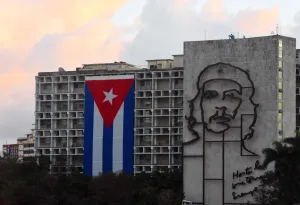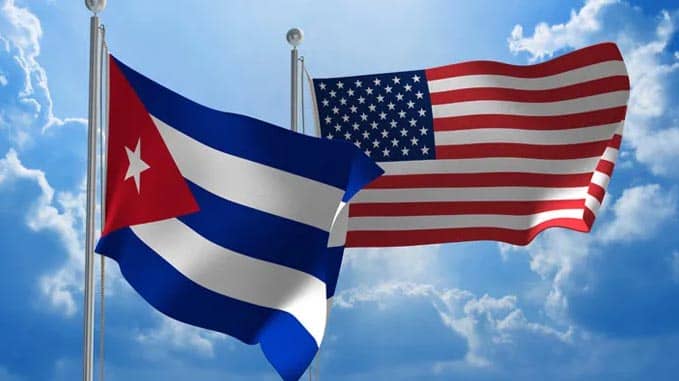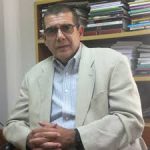A Lementable Anniversary

On February 26, 1982, then President Ronald Reagan instructed his Secretary of State to include Cuba in the so-called list of countries sponsoring terrorism, in accordance with the provisions of legislation passed three years earlier, called the Export Administration Act (Section 6).
This and other legislative texts that came to light at that time were the result of the introspective analysis that had been made in the U.S. Congress, based on the crushing defeat suffered in Vietnam, the involvement of the federal agencies of that country in a chain of coups d’état that took place in Latin America and in the assassination of several foreign political leaders, among other evils.
The report of the so-called Church Commission, for example, acknowledged for the first time the assassination attempts organized against the leader of the Cuban Revolution, Fidel Castro (8 out of more than 600).
While this sort of exorcism exercise was taking place in a sector of the U.S. political class, at the other end of the spectrum the so-called New Right was structured among those who considered that their country should not apologize for the crimes committed, that the confrontation against the socialist camp and the progressive forces would have to be even more decisive and that it was urgent to break down the barriers that prevented the penetration of U.S. capital in all corners of the planet.
In terms of Latin America and the Caribbean, a four-star general turned diplomat, Alexander Haig, put forward the alternative of “going to the source”, according to which the social struggles in the region were not due to the over exploitation caused by U.S. transnationals and other abuses, but to the example set by Cuba’s struggle to preserve its sovereignty.
Government documents of the time offered no concrete justification for considering the island a terrorist country. That empty space was filled over the years with assumptions, journalistic speculation and excerpts from speeches by Reagan and his close associates, who made sickening references to “Cuban influence”.
However, one of the keys to understanding what happened then and how Cuba appeared almost magically on that list was provided years later by a former member of the 2506th Brigade that invaded Playa Giron, a former U.S. Navy officer and former top executive of the Cuban American National Foundation (CANF). In a book that can be considered part of his memoirs, Cuban-born lawyer Antonio (Tony) Zamora explained what happened in the volume What I Learned about Cuba by Visiting Cuba (2013).
Zamora had been an exceptional witness in the exchanges that took place between high-ranking officials of the Republican government at the time and his boss at the head of the CANF, Jorge Mas Canosa. As part of those exchanges, the latter was required to bring former CIA operatives, former mercenaries, former men of the president and other human species into an electoral project that would guarantee the greatest number of votes in South Florida in favor of the Republican candidates.

José Ramón Cabañas Rodríguez
As absolutely all political arrangements in the United States are transactional in nature, when Mas Canosa was notified of his next job, he was asked what he was asking for in return. His reaction was immediate and brief: “include Cuba in the list of terrorist countries”, knowing in advance the stigma it meant for the country and the door that would be opened to aspire to constantly benefit from federal funds, which would be approved to try to change the state of affairs on the Island.
The CANF stamped its seal on the legislation to launch the so-called Radio and TV Marti projects, on the Torricelli Act, the Helms Burton Act and on all the programs approved by the National Endowment for Democracy against bad Cuban influences.
At that time the Republican operatives did not consider it a big request that Mas was making, since Cuba was already under the effects of the economic, political and financial blockade that had been in place since 1962. But over time the sanctions against those on the list were refined and expanded.
In theory, Cuba was practicing terrorism on the small island of Grenada in 1983, where Cuban experts were supporting the construction of a civilian airport, which, according to the U.S. corporate press, would serve as a springboard for the advance of communism in the region. Elite U.S. military forces invaded the small country and murdered the local population and 24 Cuban aid workers.
The inexplicable presence of Cuba on that list accompanied as a pretext each of the extermination attempts that were practiced for years against the island, even after the disappearance of the socialist camp and long after an irregular war financed from the U.S. federal budget was erasing one by one all the alternative social and armed movements in Central America.
Cuba’s support for the sovereignty of Angola, the independence of Namibia and the end of apartheid in South Africa was also considered a terrorist practice by the White House, at least until Nelson Mandela (also labeled as a terrorist in his time) became a world symbol and was received in the United States with full honors.
The issue of Cuba’s inclusion in the list against all reality was a contentious issue in the bilateral relationship until the very moment of the agreement on the reestablishment of bilateral diplomatic relations in July 2015.
On April 14, President Barack Obama sent a notification to Congress fulfilling the formality of declaring that Cuba had not participated in any terrorist action in the preceding 6 months and affirming that the Cuban government had given assurances that it would not participate in this type of activities in the future. The latter was obviously not taken from any Cuban document prepared for the occasion, but from Cuba’s permanent commitment to this scourge and its central role in the peace process in Colombia, which at that time was in its defining stages.
For the purposes of analyzing this issue today, suffice it to recall that Obama took such a step before a predominantly Republican Congress, to which several legislators of Cuban origin belonged, who threatened at all times to prevent and limit the executive provisions with respect to Cuba. For some reason their exclamations were not heard, nor was their blackmail effective.
On May 29 of the same year, Secretary of State John Kerry covered the formality of removing Cuba’s name from the list and on July 22, two days after the reopening of the Cuban embassy in Washington, the Federal Register explained that this decision amended the export administration’s regulations to implement the recission of Cuba’s designation as a State Sponsor of Terrorism, particularly with regard to the removal of anti-terrorism licensing requirements and references to the country as such, although it clarified that pre-existing licensing requirements for all products covered by the law would remain in place, unless an exception was authorized.
Five subsequent packages of measures contained general or specific licenses from the Obama administration for Cuba, which allowed the realization of limited commercial initiatives between the two countries, even with the blockade in force.
It was the first time that a country left the list without having to disappear as such (South Yemen), or without being invaded and crushed, as in the cases of Iraq and Libya.
The Donald Trump administration did not force the issue from the beginning in its determination to roll back everything that had been advanced in the relationship with Cuba. It preferred the campaign of the alleged sonic attacks, to justify the decrease in bilateral exchanges and the drastic reduction of diplomatic personnel in both capitals. Then he moved on to the presence of 20,000 invisible Cuban soldiers in Venezuela, when the coup against Caracas gained priority in the agenda his new national security team premiered at the end of 2018.
It was not until 2019 that the Colombian government of Iván Duque, now a professor at the Wilson Center in Washington DC, began to reiterate statements contrary to the spirit of the peace agreements in his country and singling out Cuba, not for its role as guarantor, but for hosting and not handing over representatives of the National Liberation Army (ELN), still a belligerent force that was in the process of being integrated at that time to the peace discussion.
This induced Colombian bellicosity coincided in time with the legal processes that followed the U.S. president to achieve his impeachment, actions that forced him to establish alliances with any politician that would help to avoid the catastrophe. It was then that in another transactional exercise, Cuban-born Senator Marco Rubio exchanged his support from the Senate Intelligence Committee for more decisive actions against Cuba, ranging from the radical cutting of air and sea travel between the two countries, the suspension of all official bilateral contacts and the “nuclear option” under the Helms Burton Act: eliminating the waiver for the non-application of Title III.
But it was not until after Trump’s defeat in his re-election bid was confirmed, that the tool of the list of countries that sponsor terrorism was used to make more difficult any action of readjustment with Cuba by the authorities of the new Democratic administration that had already been elected.
A few days before taking office (January 11, 2021), then Secretary of State Mike Pompeo locked himself in his office and, without listening to any opinion from other cabinet members or subordinates, signed a document returning Cuba’s name to the spurious list. Although the decision was totally unfounded (as in 1982), the U.S. Embassy in Havana rushed to gather arguments to substantiate this crime with escalation, nocturnally and malice aforethought. But it mistakenly began by saying “the Trump administration has been committed from the beginning to deny necessary resources to the Castro regime”, giving a glimpse of the real purposes of the decision.
If this step was absurd, in violation of all the rules of the sacrosanct inter agency consultations, even more so was the official sanctification of such an act, when the newly inaugurated administration of Joe Biden affirmed that “Cuba was not adequately cooperating in U.S. counter-terrorism efforts”, despite the fact that 80 Democratic congressmen had expressed their contrary position in a letter addressed in March 2021 to the first president. The reaffirmation of such nonsense came on May 11, 2022 in a hasty note from Anthony Blinken.
The reality is that until the latter date, Biden’s team had gladly assumed the Trumpist assumption that a combination of induced economic crisis and the effect of the pandemic would consummate the effect of the law of gravity on the Cuban government. But it did not happen, and Biden and his acolytes began to suffer one rant after another for that reason.
The first and most mediatic was the failure of the so-called Summit of the Americas organized in the city of Los Angeles in June 2022. The intention to isolate Cuba, Venezuela and Nicaragua acted as a boomerang on the organizers.
Then came a high-profile denial, when the new authorities in Bogota, a few hours after taking office (August 12, 2022), confirmed Cuba’s fundamental role in the peace negotiations and made a direct call to Washington to abandon its condemnatory practices towards the island.
And among many other declarations in the same sense came the so-called mid-term elections, in which the Democrats not only lost in Florida across the board, but for the first time were slaughtered in the three counties with the largest presence of voters of Cuban origin, which until now had been a safe Democratic bastion. There was no more need to look for the needle in the haystack.
In the rebirth of the Community of Latin American and Caribbean States at its last summit (January 24, 2023), the entire region reaffirmed its opposition to the blockade, and specifically to keeping Cuba on the “list”.
If the external calls to the White House to correct its mistake were still insufficient, within the United States, the councils of several cities have approved resolutions that indistinctly request cooperation with Cuba in general, in the area of health, the lifting of the blockade and specifically the removal of Cuba from the list of countries that sponsor terrorism. The last of these proposals is currently being debated in the capital city of Washington DC.
At this point, even in the U.S. media it is understood that the mechanism for drawing up the list itself and its opportunistic manipulation demonstrate the falsity of the U.S. “commitment” to terrorism as an international scourge.
In recent weeks, U.S. authorities have been more willing to engage in official dialogue with Cuba and delegations have met in both capitals, especially on the issue of law enforcement and compliance, an unthinkable exercise with a country that the U.S. government considers to be an effective sponsor of terrorism.
In short, all the conditions are in place for the current government to correct the mistake made by others in the past and rectified once. It is understood that even with the maintenance of the blockade, a change regarding this issue would create new opportunities for bilateral exchange. All that is missing is the key element: the political will of the president and his team. In Cuba we call it something different.
Text first published at https://resumen-english.org/2023/02/a-lementable-anniversary/#more-22793




Déjanos tu comentario